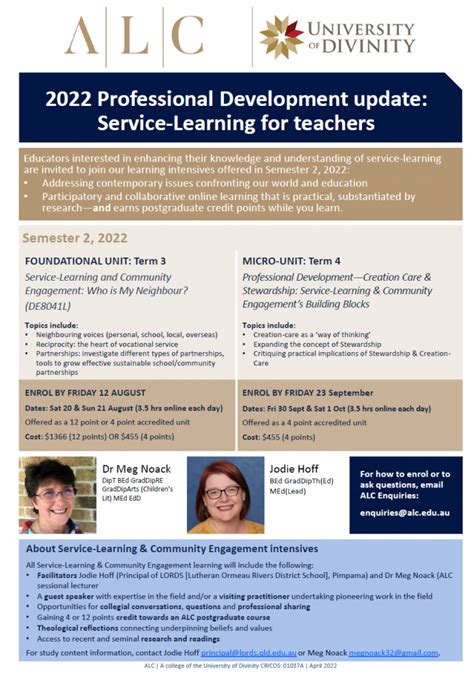Quality time with family is more than just spending moments together; it’s about creating meaningful connections that foster emotional, mental, and physical well-being. In today’s fast-paced world, the importance of family togetherness cannot be overstated, as it plays a crucial role in building strong, lasting relationships. This article explores the concept of quality time, highlighting its significance in nurturing a supportive family environment. From practical tips on how to maximize time spent with loved ones to overcoming common challenges like busy schedules and distractions, we’ll delve into strategies that help families bond more deeply. By understanding the long-term impact of consistent quality time, parents can lead by example, ensuring that family connections remain strong for years to come.
Join shzow.com as we delve deeply into this topic.
1. Understanding Quality Time: Definition and significance
Quality time refers to intentional, uninterrupted moments spent with family members, focusing on building strong emotional connections and fostering meaningful interactions. It’s not just about the amount of time spent together, but the quality of that time—engaging in activities that strengthen relationships and create lasting memories. In today’s hectic world, where distractions and busy schedules often dominate, prioritizing quality time is essential for maintaining close family bonds.
The significance of quality time lies in its ability to nurture trust, communication, and mutual understanding among family members. It provides opportunities for parents and children to connect on a deeper level, share experiences, and support each other emotionally. Quality time helps reduce stress, boosts mental well-being, and enhances the overall happiness of the family unit. By valuing and prioritizing these moments, families can create a strong foundation of love and support, which is crucial for personal growth and resilience in the face of life’s challenges.

2. Benefits of Family Togetherness: Emotional, mental, and physical health advantages
Family togetherness offers profound benefits that extend across emotional, mental, and physical well-being. Emotionally, spending quality time with family fosters a sense of belonging and security, reducing feelings of loneliness and anxiety. It creates a supportive environment where family members can express their emotions, share experiences, and provide comfort during challenging times.
Mentally, engaging in meaningful interactions with loved ones enhances cognitive function and boosts overall mental health. Family activities, such as conversations and shared hobbies, stimulate the mind, helping to reduce stress and promote relaxation. These moments of connection also build resilience, enabling family members to handle life’s difficulties with greater confidence.
Physically, family togetherness encourages healthier lifestyle habits. Families who prioritize spending time together often engage in activities like cooking, exercising, or playing sports, which promote physical health. These habits can reduce the risk of chronic illnesses and contribute to longer, healthier lives. Ultimately, the benefits of family togetherness are multifaceted, positively impacting every aspect of life.

3. Strategies for Maximizing Quality Time: Practical tips and activities
Maximizing quality time with family requires intentional planning and a focus on activities that foster connection. One effective strategy is to schedule regular family time, such as weekly game nights, shared meals, or outdoor activities. This consistency helps prioritize family togetherness amidst busy schedules.
Another practical tip is to engage in activities that everyone enjoys, whether it’s cooking a meal together, playing a sport, or simply taking a walk. These shared experiences create lasting memories and strengthen bonds.
Limiting distractions, such as turning off electronic devices during family time, allows for more meaningful interactions. Additionally, incorporating small daily rituals, like a bedtime story or a morning check-in, can enhance emotional connection.
Finally, embracing flexibility and spontaneity is key. Sometimes, the best moments happen unexpectedly, so being open to impromptu family activities can also deepen relationships. By implementing these strategies, families can make the most of their time together and build stronger connections.

4. Overcoming Common Challenges: Managing busy schedules and distractions
Balancing busy schedules and minimizing distractions are common challenges that families face when trying to prioritize quality time together. However, overcoming these obstacles is crucial for fostering strong family connections. One effective approach is to establish clear priorities. Recognize that family time is essential for well-being and happiness, and make it a non-negotiable part of your routine. This might mean scheduling family activities just as you would important meetings or appointments.
Time management plays a key role in overcoming busy schedules. Families can create a shared calendar to coordinate activities and find overlapping free time. Even short periods of connection, like a 15-minute breakfast together or a quick evening walk, can make a significant difference.
To combat distractions, especially from electronic devices, setting boundaries is important. Designate specific “tech-free” times, such as during meals or before bed, where everyone focuses on being present with each other. Encouraging open communication about the importance of these boundaries helps everyone understand their value.
Another challenge is the temptation to overcommit to work, extracurricular activities, or social obligations. Learning to say no to non-essential commitments can free up more time for family. Additionally, delegating tasks or seeking help when needed can lighten the load, making it easier to prioritize family togetherness. By addressing these challenges thoughtfully, families can create more opportunities for meaningful connection.
5. Role of Parents: Leading by example and fostering meaningful connections
Parents play a pivotal role in fostering meaningful connections within the family by leading by example. Their actions, attitudes, and priorities set the tone for how family members interact and value time together. By demonstrating a commitment to quality time, parents show their children that family connections are important and worth investing in.
One way parents can lead by example is through consistent involvement in family activities. Whether it’s participating in a shared hobby, helping with homework, or simply being present during meals, parents who actively engage with their children create a strong foundation of trust and communication.
Parents can also model healthy communication by expressing their feelings openly and encouraging their children to do the same. This helps create a safe space where everyone feels heard and valued. Additionally, showing empathy, patience, and respect in interactions teaches children the importance of these qualities in building strong relationships.
Fostering meaningful connections also involves balancing guidance with giving children space to grow. Parents can support their children’s interests and allow them to take the lead in certain activities, promoting independence while still maintaining a close bond.
Ultimately, parents who prioritize and model the importance of family time create an environment where meaningful connections can thrive, setting the stage for lifelong relationships built on love, trust, and mutual respect.
6. Long-Term Impact: How consistent quality time strengthens family bonds over time
Consistent quality time has a profound long-term impact on strengthening family bonds. When families make regular efforts to connect, they build a foundation of trust, understanding, and emotional security that endures over time. This consistency fosters a deep sense of belonging, helping family members feel supported and valued throughout their lives.
Over time, these regular interactions create a shared history filled with positive memories and experiences. These memories serve as a source of comfort and resilience during difficult times, reminding family members of the strength of their relationships. The emotional closeness that develops from consistent quality time also enhances communication, making it easier to resolve conflicts and navigate challenges together.
For children, growing up in an environment where quality time is prioritized helps them develop strong social and emotional skills. They learn the importance of relationships and are more likely to carry these values into their own adult lives, fostering healthy relationships in the future.
Ultimately, consistent quality time creates lasting bonds that extend beyond the immediate family, influencing future generations. By investing in these connections, families build a legacy of love, support, and togetherness that strengthens over time and positively impacts every member.
In conclusion, prioritizing quality time with family is essential for nurturing strong, lasting bonds and enhancing overall well-being. By understanding its significance, implementing practical strategies, and overcoming common challenges, families can create meaningful connections that benefit emotional, mental, and physical health. Parents who lead by example and consistently invest in family time lay the groundwork for enduring relationships. Ultimately, these efforts build a legacy of love and support that e
shzow.com
